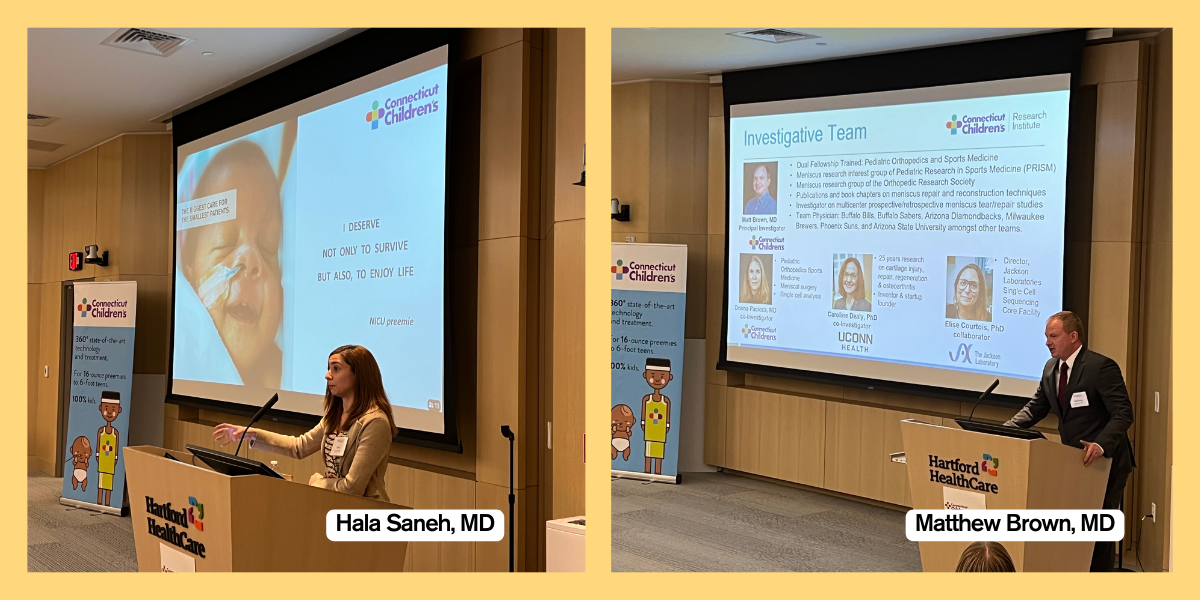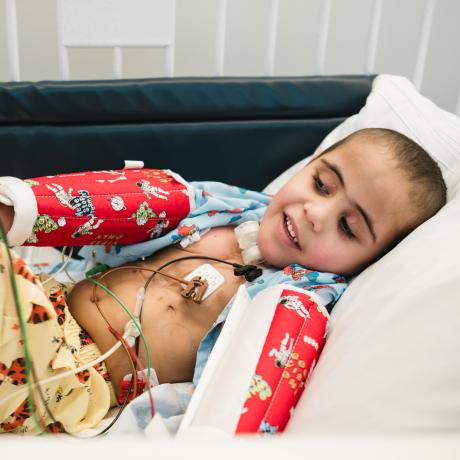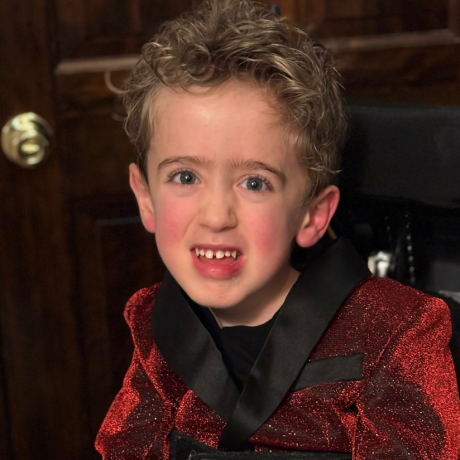From lungs to knees: unlocking the healing potential of regenerative medicine

One year after Connecticut Children’s Connection Visionary members voted to award two $50,000 research grants to neonatologist Hala Saneh, MD, and orthopedic surgeon Matt Brown, MD, their projects are making exciting strides that highlight the power of philanthropic support for medical research. Here’s an update on the progress they’ve made:
Preventing chronic lung disease in premature babies
When babies are born too early, their lungs are not fully developed, making it difficult for them to breathe on their own. The extra oxygen or breathing machines they need to survive can injure their fragile lungs, however, and cause chronic lung disease—known as bronchopulmonary dysplasia (BPD). Dr. Saneh is exploring a promising new treatment that uses extracellular vesicles (EVs)—tiny particles secreted by stem cells—to repair and support the healthy growth of premature lungs.
The Connecticut Children’s Connection grant is supporting the early, preclinical stage of her research. Her team has refined the laboratory methods needed to isolate and study EVs, and improved their animal models by using advanced technologies, such as single-cell RNA sequencing. This has allowed them to closely examine how premature lung disease affects gene expression and confirm that their animal model mirrors key features seen in premature infants. They have also acquired and received training on a mechanical ventilator for small animals, a tool that enables them to evaluate lung function following injury and after EV treatment.
A rare meniscus may hold clues to healing knee injuries
Each year, 2.5 million kids suffer knee injuries, and 10 to 20% of those are meniscus tears—an injury that can lead to early arthritis in as many as half of affected children. Yet current treatments don’t always deliver a long-term fix. Dr. Brown is exploring a promising new lead: the discoid meniscus, a rare variation found in 3 to 5% of the population, which has the unique ability to regenerate itself.
Dr. Brown has secured approval from Connecticut Children’s Institutional Review Board (IRB) for the study. The IRB reviews all projects involving human subjects prior to any data collection to ensure that ethical and regulatory standards are met. After approval, Dr. Brown and his team began collecting discarded tissue samples obtained during meniscus surgery—the first step in comparing and identifying the cells and factors present in normal versus discoid menisci.
Philanthropy has always been important to medical research—and with federal research funding now under threat, it’s more critical than ever. If you’re interested in supporting today’s researchers and making a difference that will improve children’s health for generations to come, Connecticut Children’s Connection is for you. Connecticut Children’s Connection (CCC) is a community of passionate individuals dedicated to transforming children’s lives by investing in cutting-edge pediatric healthcare research—while providing meaningful opportunities to connect, contribute, and create lasting impact. We hope you will consider joining us at an upcoming prospective member gathering.
Transforming How Research is Funded
Learn more about Connecticut Children's Connection at an upcoming prospective member gathering.
Latest Articles

How HuskyTHON Student Leaders Are Changing Lives

Matters of the Heart: Cardiac Telemetry Saves Kids’ Lives
